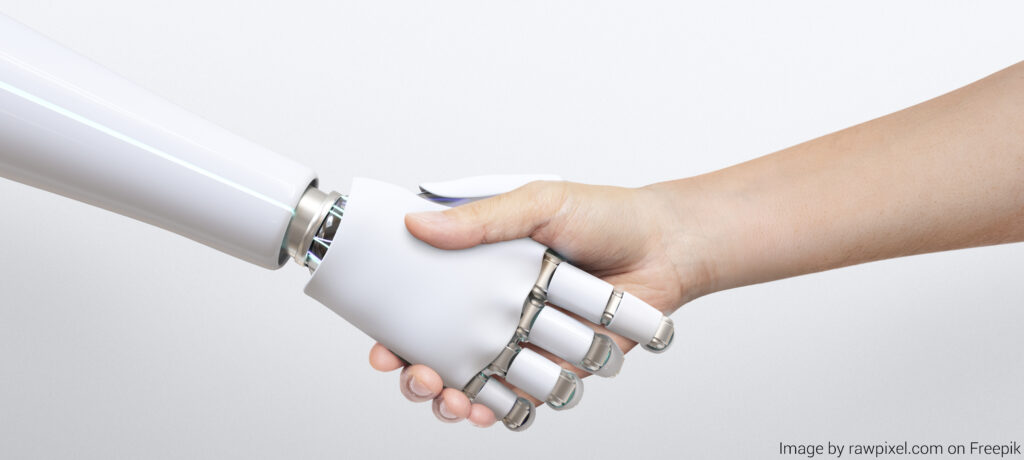In today’s rapidly evolving digital landscape, artificial intelligence (AI) is revolutionizing various industries, including events marketing. In this article, we will explore 10 ways in which AI is transforming the events marketing landscape by showcasing real-world examples of how companies are leveraging AI to enhance marketing strategies, personalize attendee experiences, optimize resource allocation and embrace data-driven decision-making.
#1 Enhanced Marketing Strategies
AI empowers event organizers with powerful tools to enhance their marketing strategies. Event management platform Bizzabo utilizes AI algorithms to analyze data from previous events, social media platforms and attendee registrations. These insights enable organizers to create personalized and targeted marketing campaigns, optimizing messaging, identifying the most effective channels, and improving return on investment (ROI).
#2 Personalized Attendee Experiences
AI enables event organizers to deliver personalized experiences that engage attendees. Dreamforce, Salesforce’s annual conference, employs an AI-powered chatbot named “Einstein” to interact with attendees. Einstein provides personalized information including session recommendations, event logistics and networking opportunities, enhancing attendee engagement and satisfaction.
#3 Resource Allocation Optimization
AI assists event organizers in optimizing resource allocation. Event management platform EventGeek offers AI-powered analytics that determine optimal staffing requirements based on historical data, attendance patterns and event characteristics. This ensures efficient resource utilization, minimizes costs and streamlines logistics.
#4 Data-Driven Decision Making
AI empowers event organizers to make informed decisions based on data-driven insights. Eventbrite utilizes AI to analyze attendee data, social media interactions and ticket sales, providing actionable insights for organizers. This enables them to optimize event content, tailor marketing strategies and improve overall event planning.
#5 Event Experience Enhancement
AI technologies enhance the event experience for both attendees and exhibitors. Major events like CES and SXSW have implemented facial recognition technology for seamless registration, eliminating physical badges and reducing wait times. AI-powered chatbots and voice assistants, such as IBM’s “Watson” provide real-time support, answer attendee questions and offer personalized recommendations, ensuring a smooth and interactive event experience.
#6 Predictive Analytics and Risk Mitigation
AI’s predictive analytics capabilities enable event organizers to anticipate and mitigate risks. SAP utilizes AI and machine learning algorithms to analyze data, including historical event data and external factors like weather conditions. This helps predict attendance rates accurately, allowing organizers to adjust venue capacity and resources accordingly.
#7 Social Media Engagement and Influencer Marketing
AI-powered tools enable event organizers to harness the power of social media and influencer marketing. For instance, Socialbakers offers AI-driven social media analytics to identify relevant influencers and optimize influencer campaigns. This enhances event visibility, increases engagement and attracts a wider audience.
#8 Personalized Recommendations and Networking Opportunities
AI-driven recommendation engines facilitate personalized recommendations and networking opportunities. Event platform Grip uses AI algorithms to match attendees based on their profiles and preferences, fostering meaningful connections and maximizing networking potential. These personalized recommendations enhance attendee satisfaction and engagement.
#9 Intelligent Event Scheduling and Conflict Resolution
AI-powered scheduling systems optimize event scheduling and minimize conflicts. Event management platform Hubb utilizes AI algorithms to analyze session topics, attendee preferences and resource availability. This ensures a balanced event schedule, minimizes overlapping sessions and maximizes attendee participation.
#10 Post-Event Analysis and ROI Measurement
AI enables post-event analysis and accurate ROI measurement. Cvent, a leading event management platform, uses AI-powered analytics to assess event success, measure attendee satisfaction and calculate ROI. These insights help organizers understand event impact, make informed decisions for future events and demonstrate the value of their investments.
As the events marketing landscape continues to evolve, embracing the transformative power of AI becomes imperative for companies in the industry. AI technologies offer a plethora of opportunities to enhance marketing.
